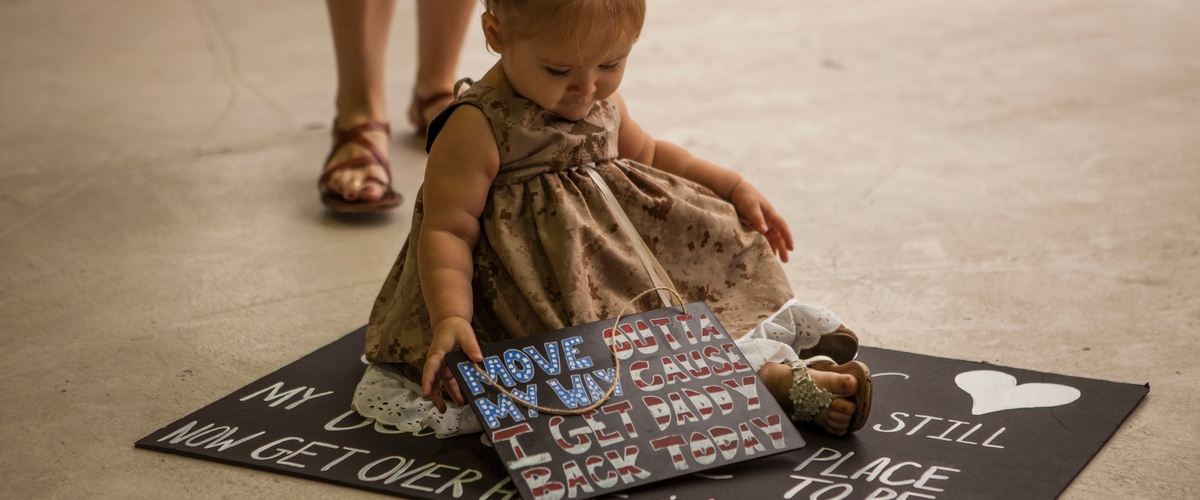Parenting From a Distance: How to Help Your Kids Through Deployment

Separations from loved ones are part of the job when you are a Marine. They are hard on everyone and can be especially challenging for children. Children often do not understand where you are going, what you are doing, or when you are coming back. Staying in touch with loved ones while you are away can be reassuring for those left at home and help ease their concerns. Below are some tips to help you stay connected to your child, your young siblings, or any other children who are important to you.
You can also encourage your family to use the Families OverComing Under Stress (FOCUS) program, which helps address stresses related to military life. FOCUS offerings range from consultations and trainings to programs designed to help your kids, such as teaching children how to talk about stress or other feelings they may have during deployment. Go here to find out if your installation offers FOCUS and how to contact them.
- Talk to them. Talk to your kids about where you are going and ask them what they think. Encourage them to ask questions, but be sure to keep your answers age appropriate. Children will use their imaginations to fill in gaps when they are unsure about things. What they come up with is sometimes much scarier than the truth.
- Help your family get connected. Deployment Readiness Coordinators (DRCs) are available to help your family with the stress and challenges of deployment. DRCs are your main connection to any information and support programs you need, such as the trainings and briefs offered by Readiness and Deployment Support.
- Use technology. If you can access the Internet, you can access your loved ones. Apps are available for free international messaging. You can also video chat on Facebook, share photos, and email family across the world. The Internet is a great way to stay connected to what is going on back home, whether it’s sharing the latest haircut, art masterpiece, or the most recent school picture outfit to be shared with the click of a button. You can also record yourself reading your child’s favorite story — the next best thing to having you physically there at bedtime. MCCS Libraries can help with this! Go to your installation library and ask about the “United through Reading” program.
- Create photo books. Children love books. Consider creating a photo book, especially if you have young children. You can create your own or use one that already has photo inserts. I’m Here for You Now is a board book for children who have a deployed parent that allows for personalized photos to be inserted. Contact your local Marine Corps Community Services office, your Military Family Life Counselor, or Military OneSource to obtain a copy.
- Send letters. Sending a handwritten letter is not the most efficient way to communicate. However, receiving mail is an exciting experience for a child. Write a letter and address the envelope to your loved one. Add photos, drawings, and other personal items. This is also a great way for children to be able to share things with you.
- Care packages. The sense of smell is a powerful memory trigger. Send items that smell like you — a shirt you wore or a pillowcase you slept on. This will allow your child to fall asleep comforted by your scent.
If you have concerns about how your child is handling the separation, there are resources available. The Family Advocacy Program, New Parent Support Program, and Community Counseling Program are all available to help both parents and children of all ages. Contact Military OneSource at
800.342.9647 for additional resources and information.